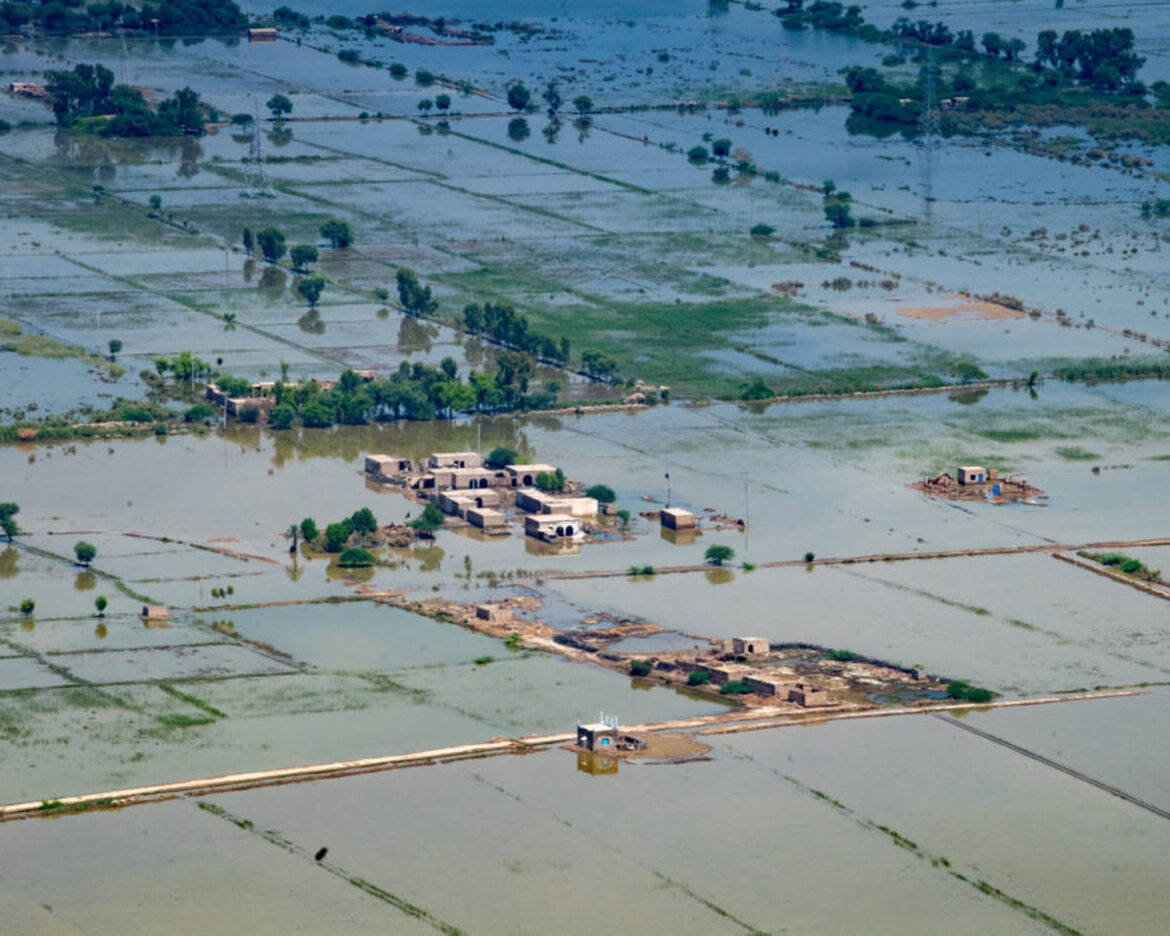Pakistan has received $10.9 billion from international development partners, falling significantly short of the $30 billion estimated loss caused by the 2022 floods. The shortfall of $19.1 billion has stalled rehabilitation work in the flood-affected provinces of Sindh, Balochistan, and Khyber Pakhtunkhwa.
The updates were shared during a meeting of the Policy and Strategy Committee (PSC) and the Oversight Board on Post-Flood Reconstruction Activities, chaired by Federal Planning Minister Ahsan Iqbal. Representatives from the World Bank, Asian Development Bank, United Nations, and the European Union were also in attendance.
The 2022 floods caused catastrophic damage, with the Post-Disaster Needs Assessment (PDNA) estimating total damages at $14.9 billion and economic losses at $15.2 billion. The financial need for recovery was projected at $16.2 billion, yet only $10.9 billion in pledges have been received. The disaster led to significant food insecurity, with the number of affected people rising from 7 million to 14.6 million. Over 2 million housing units were damaged, with 780,000 completely destroyed.
While discussing the Integrated Flood Resilience and Adaptation Project (IFRAP), Minister Iqbal voiced concerns over the delayed reconstruction efforts in Balochistan. The $400 million IFRAP aims to assist approximately 35,100 homeowners with housing reconstruction grants, promote climate-smart agriculture, and restore essential services by rehabilitating community infrastructure.
Iqbal urged ministries to resolve any obstacles hindering flood-resilient projects and directed that incomplete documents be returned within 15 days to prevent further delays.
The unprecedented 2022 floods, which submerged one-third of the country, highlighted Pakistan’s vulnerability to climate change despite its minimal contribution to global greenhouse gas emissions. The disaster affected 33 million people, displaced nearly 8 million, and claimed over 1,700 lives, with children comprising one-third of the victims.
The reconstruction efforts face an uphill battle as the country grapples with the financial shortfall and the pressing need for climate adaptation measures.



